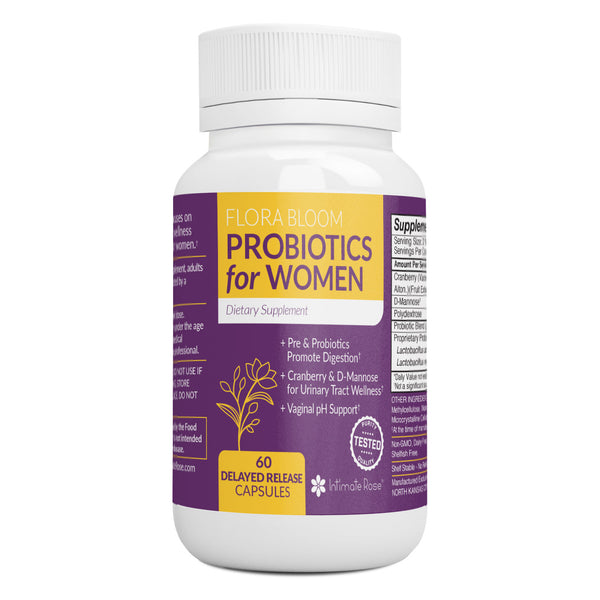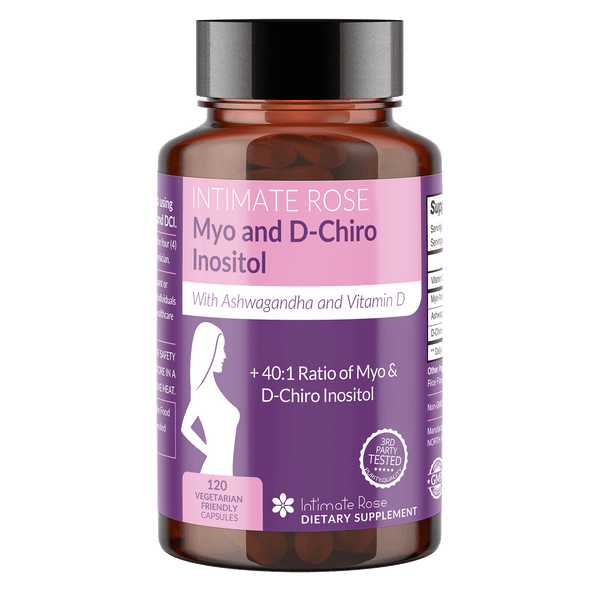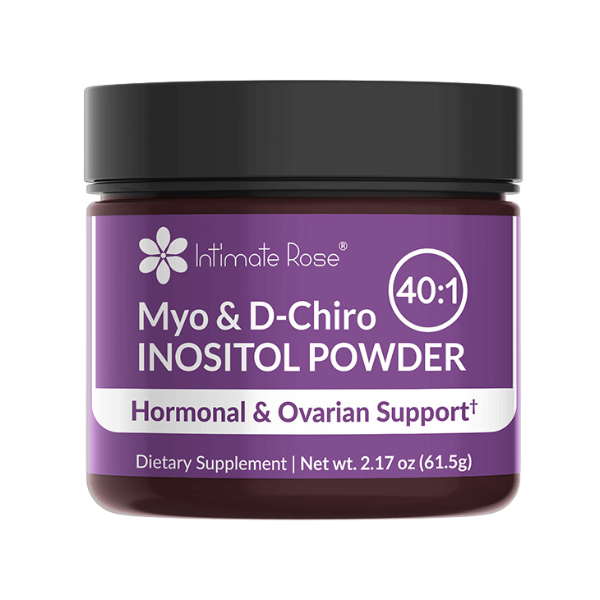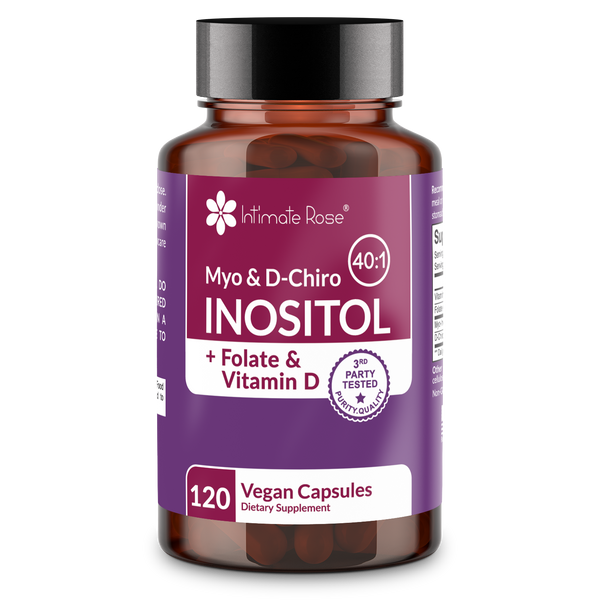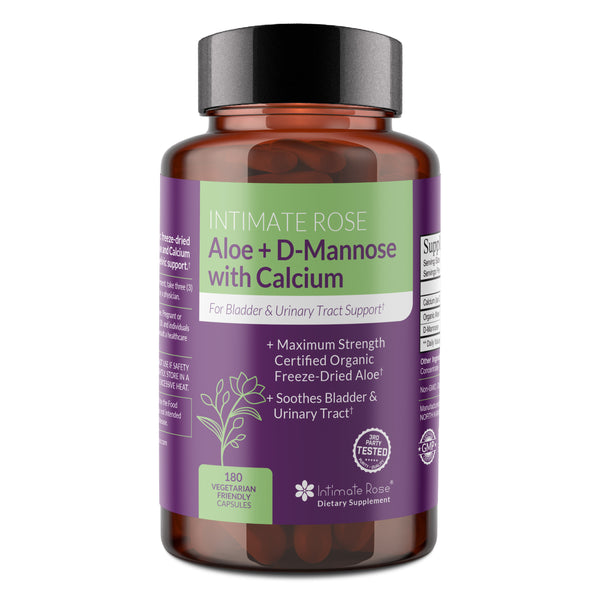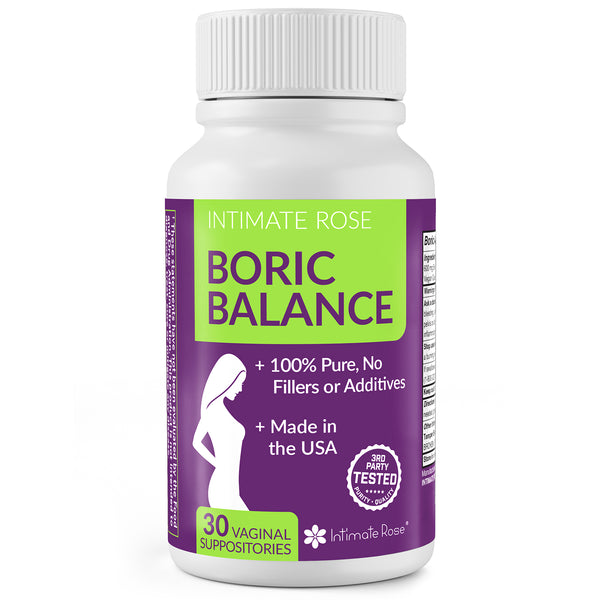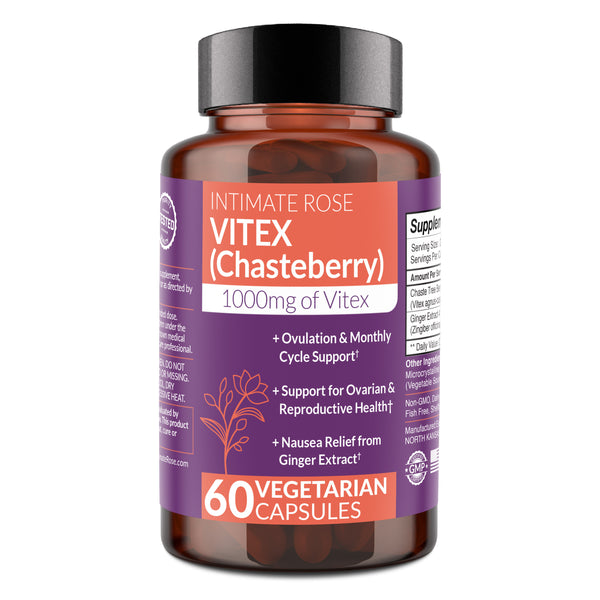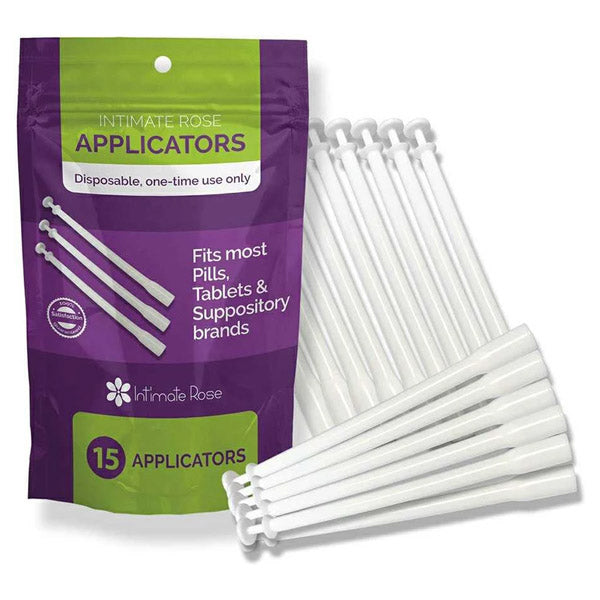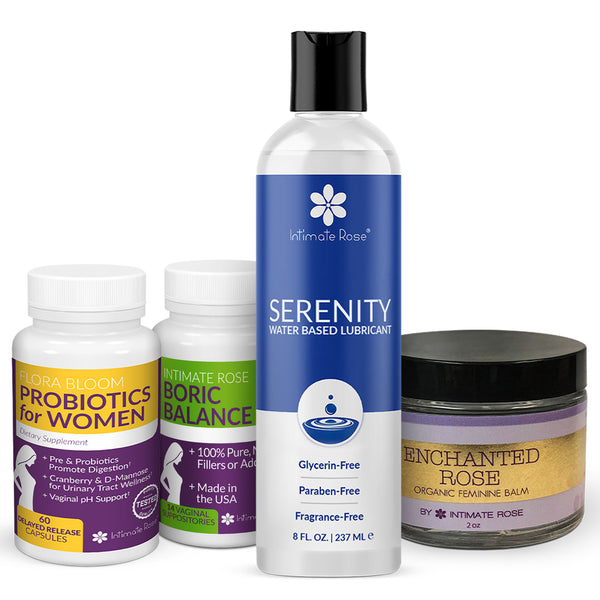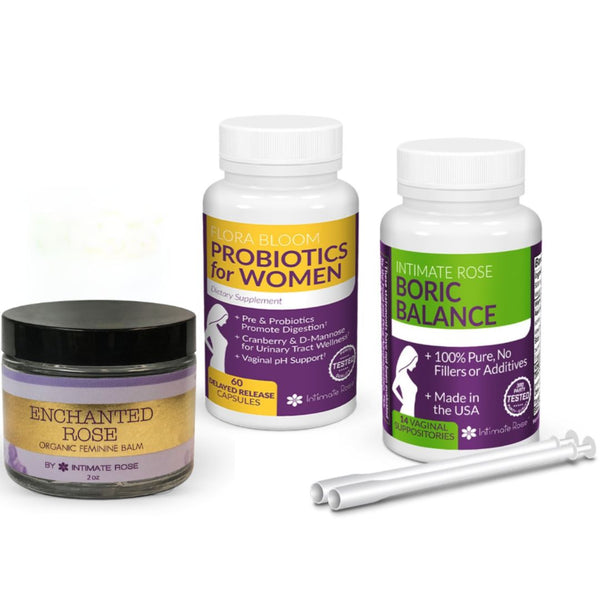Inositol is a sugar commonly taken to help with metabolic syndrome and polycystic ovarian syndrome (PCOS). Some research has also shown that inositol can help those with gestational diabetes and may also improve some mental illnesses such as depression and anxiety. But what does inositol do, and is it safe to use?
We’ve compiled some research to help answer all your questions about the relationship between inositol, diabetes, and pregnancy.
Things Off Down There?
What is Gestational Diabetes?
Diabetes is a condition when you have too much sugar in your blood, usually because your body is not producing insulin (type 1 diabetes) or, more commonly, not effectively utilizing insulin (type 2 diabetes). Gestational diabetes is diabetes that forms while a person is pregnant as a result of the changes that a pregnant body goes through to help provide for the fetus.
Approximately 1-14% of cases of gestational diabetes will last beyond pregnancy, and having gestational diabetes while pregnant increases the risk of developing type 2 diabetes later in life (American Diabetes Association, 2004). A child born from a pregnancy affected by gestational diabetes also has a higher risk of developing diabetes or other metabolic problems as they grow up.
Risk Factors of Gestational Diabetes
You may be at greater risk of developing diabetes during your pregnancy if you have any of the following risk factors (Petry, 2010):
- Overweight or obese (whether before the pregnancy or from above average weight gain during the pregnancy)
- A family history of gestational or type 2 diabetes
- Smoking during pregnancy
- Other conditions such as PCOS or metabolic syndrome
The age at which you become pregnant may also be a risk factor for gestational diabetes, particularly if you are over 35 (Lao et al, 2006).
What is Inositol?
Inositol is a type of sugar found in nature and produced by your kidneys. It is probably already in your diet via fruits, beans, nuts, and grains (Clements & Darnell, 1980). The most common form of Inositol found in nature is myo-inositol. It is also widely available as a supplement, often in combination with D-chiro-inositol.
(See the Intimate Rose Myo & D-chiro Inositol Blend)
How can Inositol help with gestational diabetes?
Inositol can help insulin work better, which means that it can help sugar move from your blood to the rest of your body. This is important in helping to manage gestational diabetes and in helping to prevent the onset of type 2 diabetes after pregnancy.
A Cochrane Review of 71 trials and over 23,000 women looked at interventions to prevent gestational diabetes. They found that myo-inositol may be able to help, though we need more research to confirm these findings.
The review also found that having adequate nutrition and exercises appropriate to the pregnant body can help, as well as Vitamin D (which the body makes when exposed to sunlight). Metformin, a common diabetes medication, might also help (Griffith et al, 2020).
Is Inositol safe to take while pregnant?
Clinical trials suggested that at very high doses--much higher than the recommended four grams per day--inositol may cause some mild gastrointestinal symptoms (such as nausea), as well as headaches, dizziness, and fatigue.
However, there is very little risk involved in taking the normal recommended dose of inositol. No current research suggests that inositol poses any risk to either child or parent when taken during pregnancy (Formoso et al, 2019). When inositol helps to improve insulin resistance during or after pregnancy, it may be the safer choice.
How does the Inositol supplement work?
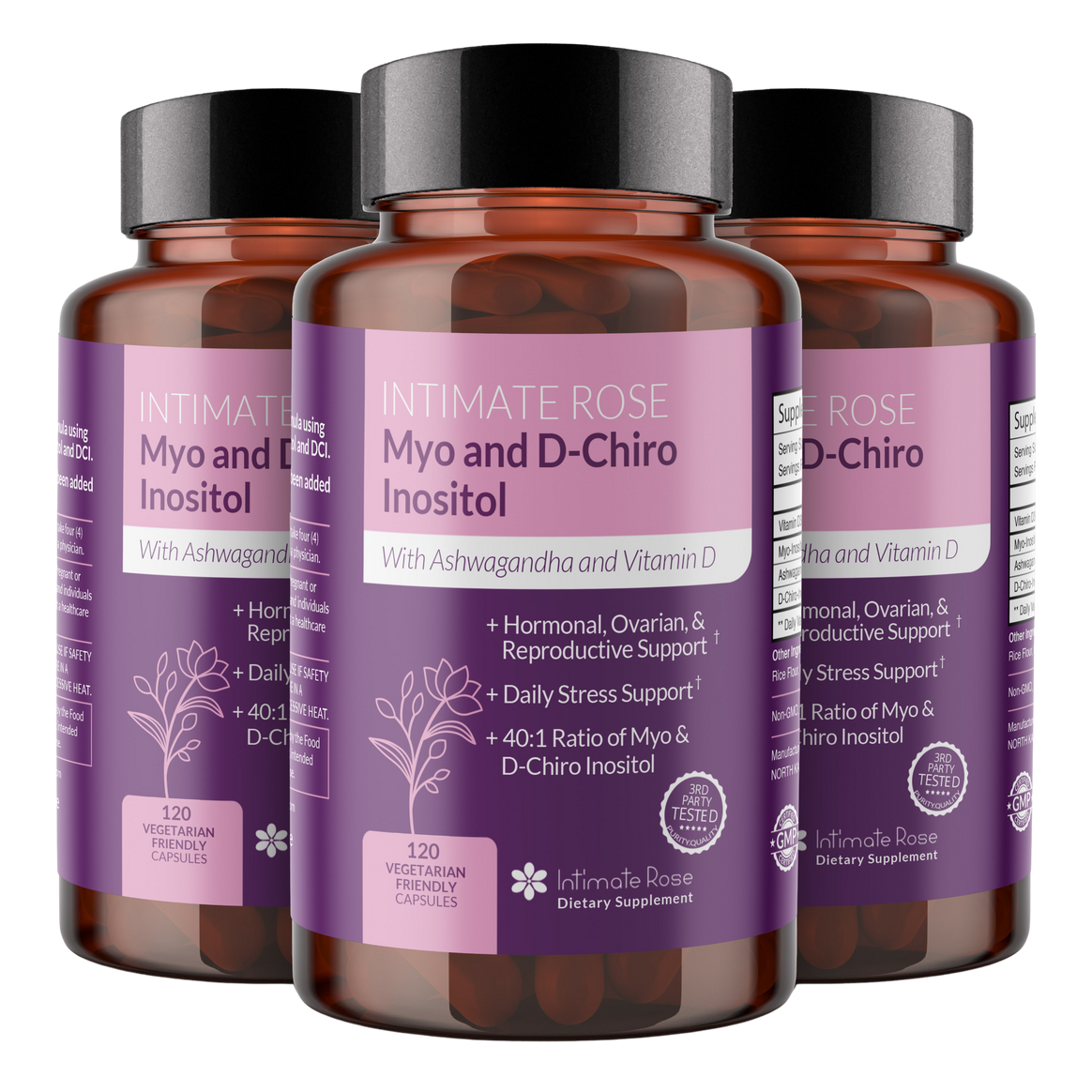
Conclusion
Research into the safety and efficacy of medications and supplements is never 100% guaranteed. That said, current data suggest that taking inositol while pregnant may help improve insulin resistance in gestational diabetes and reduce the risk of diabetes developing after pregnancy.
If you are concerned about developing gestational diabetes (particularly if you have a history of insulin resistance in your family, if you are overweight, or if you are over 35 years old), having a healthy diet which is not too carb-heavy and getting regular exercise might help.
Consult your doctor or OB/GYN about what an appropriate diet and exercise routine may look like during pregnancy, and ask if inositol might help reduce your risk of diabetes during or after pregnancy.
FAQs
Does inositol help with gestational diabetes?
Yes, inositol—especially myo-inositol—may help improve insulin sensitivity during pregnancy, potentially reducing the risk or severity of gestational diabetes, according to clinical research.
How long does myo-inositol take to work for gestational diabetes?
Myo-inositol may begin improving insulin sensitivity within a few weeks, but consistent daily intake is recommended, typically 2–4 grams per day, for noticeable benefits during pregnancy.
Is metformin better than inositol for pregnancy?
Metformin is a well-established medication for managing blood sugar, but myo-inositol is a natural alternative that may offer similar benefits with fewer side effects; consult your doctor to determine the best option.
What supplements help with gestational diabetes?
Myo-inositol, D-chiro inositol, and Vitamin D are among the most studied supplements that may support blood sugar regulation in pregnancy, alongside proper diet and exercise.
What happens if you take inositol while pregnant?
When taken at recommended doses, inositol is considered safe during pregnancy and may help improve insulin resistance, with minimal risk of side effects like mild nausea or headache.
How much inositol should I take a day for gestational diabetes?
Most studies use 2 to 4 grams of myo-inositol per day, often in combination with D-chiro-inositol; always follow your healthcare provider’s dosage recommendations.
Can I take inositol instead of metformin?
In some cases, inositol may be used as a natural alternative to metformin to support insulin sensitivity, but always consult your OB/GYN before replacing a prescribed medication.
Should I stop inositol when pregnant?
No, you don’t necessarily need to stop. Inositol is generally considered safe during pregnancy when used as directed. Speak with your doctor to confirm it's right for you.
Can I take inositol and folic acid together?
Yes, inositol and folic acid are often taken together safely and may even complement each other in supporting healthy hormone balance and fetal development.
References
- American Diabetes Association. (2004). Gestational diabetes mellitus. Diabetes care, 27(suppl 1), s88-s90. https://doi.org/10.2337/diacare.27.2007.S88
- Petry, C. (2010). Gestational diabetes: Risk factors and recent advances in its genetics and treatment. British Journal of Nutrition, 104(6), 775-787. https://doi.org/10.1017/S0007114510001741
- Lao, T. T., Ho, L. F., Chan, B. C., & Leung, W. C. (2006). Maternal age and prevalence of gestational diabetes mellitus. Diabetes care, 29(4), 948-949. https://doi.org/10.2337/diacare.29.04.06.dc05-2568
- Clements Jr, R. S., & Darnell, B. (1980). Myo-inositol content of common foods: development of a high-myo-inositol diet. The American journal of clinical nutrition, 33(9), 1954-1967. https://doi.org/10.1093/ajcn/33.9.1954
- Griffith RJ, Alsweiler J, Moore AE, Brown S, Middleton P, Shepherd E, Crowther CA (2020). Interventions to prevent women from developing gestational diabetes mellitus: an overview of Cochrane Reviews. Cochrane Database of Systematic Reviews 2020, Issue 6. Art. No.: CD012394 https://doi.org/10.1002/14651858.CD012394.pub3
- Formoso, G., Baldassarre, M., Ginestra, F., Carlucci, M. A., Bucci, I., & Consoli, A. (2019). Inositol and antioxidant supplementation: Safety and efficacy in pregnancy. Diabetes/metabolism research and reviews, 35(5), e3154. https://doi.org/10.1002/dmrr.3154

Things Off Down There?






